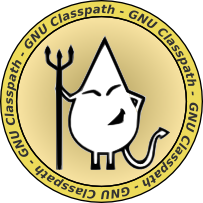Originally posted by caligula
View Post
Poor performance would either be from inefficient algorithms in GNU Classpath or bad assembly code generation in GCC. The former would have been solved by adopting OpenJDK while the latter likely could be fixed with improved middle end optimization passes. Actually, I guess there is a third category, which would be the garbage collector design used by GCJ. I have no knowledge about it, but that is an area where GCJ likely could be improved.






Comment